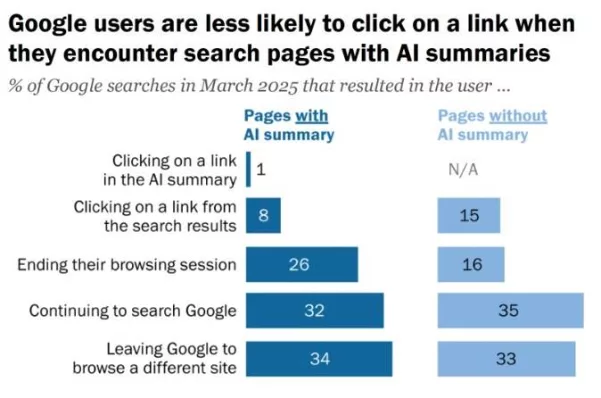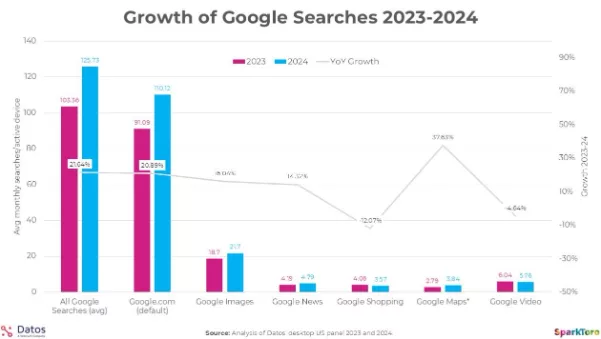Hello, community! How often lately have you preferred AI when you needed to figure something out — to get some stats, casual info, or even find out where the tastiest hotdog is? Speaking from personal experience, I can safely say I rely more and more on artificial intelligence for these tasks. It’s simply more convenient, though not always more accurate.
But that’s just me — one tiny speck in a massive traffic flow. What about others? Is there a real risk that more and more people will use AI, and as a result SEO will die (finally officially die, not like it’s been “dying” every year since 2003)? Basically, because people won’t even click on the search engine itself anymore, let alone visit a website.
Today we’ll dive into whether ChatGPT could realistically replace Google and other search engines. And if you still don’t know how ChatGPT can help in affiliate marketing, check out our dedicated review!
AI is Already Inside Google
Let’s start with the obvious, though not always openly discussed. Comparing search engines and AI isn’t so simple anymore. Google itself is already integrating artificial intelligence into its search algorithms. It literally generates answers, similar to ChatGPT — though in a simpler form for now. But this may only get more advanced over time.
And that’s not worse for the average user — they’re getting only benefits, like saving time by not needing to click links, scroll pages, or read long texts. It’s worse for us, affiliates and webmasters. Because traffic never even reaches our resources — AI already satisfies the need directly in search.
From this angle, the situation looks very far from “ok.” To see how serious this effect is, we can just look at fresh research — for example, the latest PewResearch data.

The findings: if there’s an AI-generated answer on the page, only 8% of users click through to websites. Without an AI answer, that figure doubles to 15%. In other words, Gemini’s summaries can cut potential traffic in half. And needless to say — that’s a massive deal.
This phenomenon, where users don’t go beyond the search results page, is called zero-click. And more and more users are behaving this way.
For example, The Verge also reported that AI integration in search engines kills traffic. Even though Google denies the issue, they admit user behavior is changing.
But Is ChatGPT the Real Threat?
At least with Google, we can still capture some traffic. But what if users switch entirely to ChatGPT? That would make it much harder for webmasters. So — is ChatGPT really eating into search, or is the situation less dramatic?
The truth is: AI-related problems for webmasters go far beyond ChatGPT. But should we worry about this additional competitor?
According to SearchEngineLand (March 2025), Google still dominates massively. Their data shows:
- In 2024, people made 5 trillion Google searches (≈14 billion per day), giving it 93.57% market share;
- In the same period, ChatGPT logged about 37.5 million daily prompts.
Moreover, Google searches grew by nearly 22% year-over-year in 2024 compared to 2023 — despite ChatGPT hype. Other services like Google News, Images, Maps, and Video are also showing growth.

If you’re betting on organic, it’s still a viable way to generate profit. But the rise of zero-click hints that in the future, we’ll need to diversify traffic sources.
Could Things Change in the Future?
As for prospects — we can’t ignore recent news.
On July 9, 2025, OpenAI announced its plan to launch its own browser, “Aura.” It will look and feel like ChatGPT, but its main goal is data collection — studying user behavior to improve AI models and potentially integrate advertising tools.
No need to look far for examples: META already tracks every action to push hyper-personalized ads. Similarly, OpenAI could use high-quality targeted ads as their “Google killer” — not the browser itself.
But right now, we can only speculate about whether Aura will find real demand.
How to Adapt to AI Dominance
If zero-click sessions keep rising, we can still profit — but only if we adapt funnels to new realities. Already, AI answers sometimes contain ads. Even Gemini summaries include hidden promotions.
Organic traffic through AI is possible, too. Answers often link to sources. That means we should optimize not just for search engines, but also for AI — so that your site becomes the reference source AI uses. (We’ll break this down in future guides.)
AI Surprises Not Only Positively
At the same time, AI — including ChatGPT — can create or amplify problems.
For instance, WSJ reported a case where ChatGPT reassured someone with delusional thoughts by suggesting they were a “genius” rather than mentally unwell.
Even now, with the release of model 5.0, issues persist — from struggling to count characters in short words to generating nonsensical answers. Funny at first glance, sure — but in practice, it means other answers may also be unreliable.
Meanwhile, the EU is ramping up oversight of digital products. Stories like AI reinforcing conspiracy thinking could trigger tighter controls on ChatGPT from regulators.
But for now, this remains theoretical. We’ll see soon enough how it unfolds in practice.
Conclusion
Back to the main question: can ChatGPT replace Google? For now, absolutely not. That’s certain.
But! When it comes to AI as a threat to traffic — things look less rosy. Zero-click sessions are rising, and the better Gemini’s summaries get, the fewer users will reach our sites.
That said, don’t forget about EU antitrust laws. Regulators may step in to reduce zero-click sessions. Talks are already happening, but how it plays out — we’ll cover in future posts.
What do you think? Share your thoughts on where AI development will take us in our Telegram community — one of the few places still full of natural intelligence, not artificial!
Respectfully, Your Geek!
